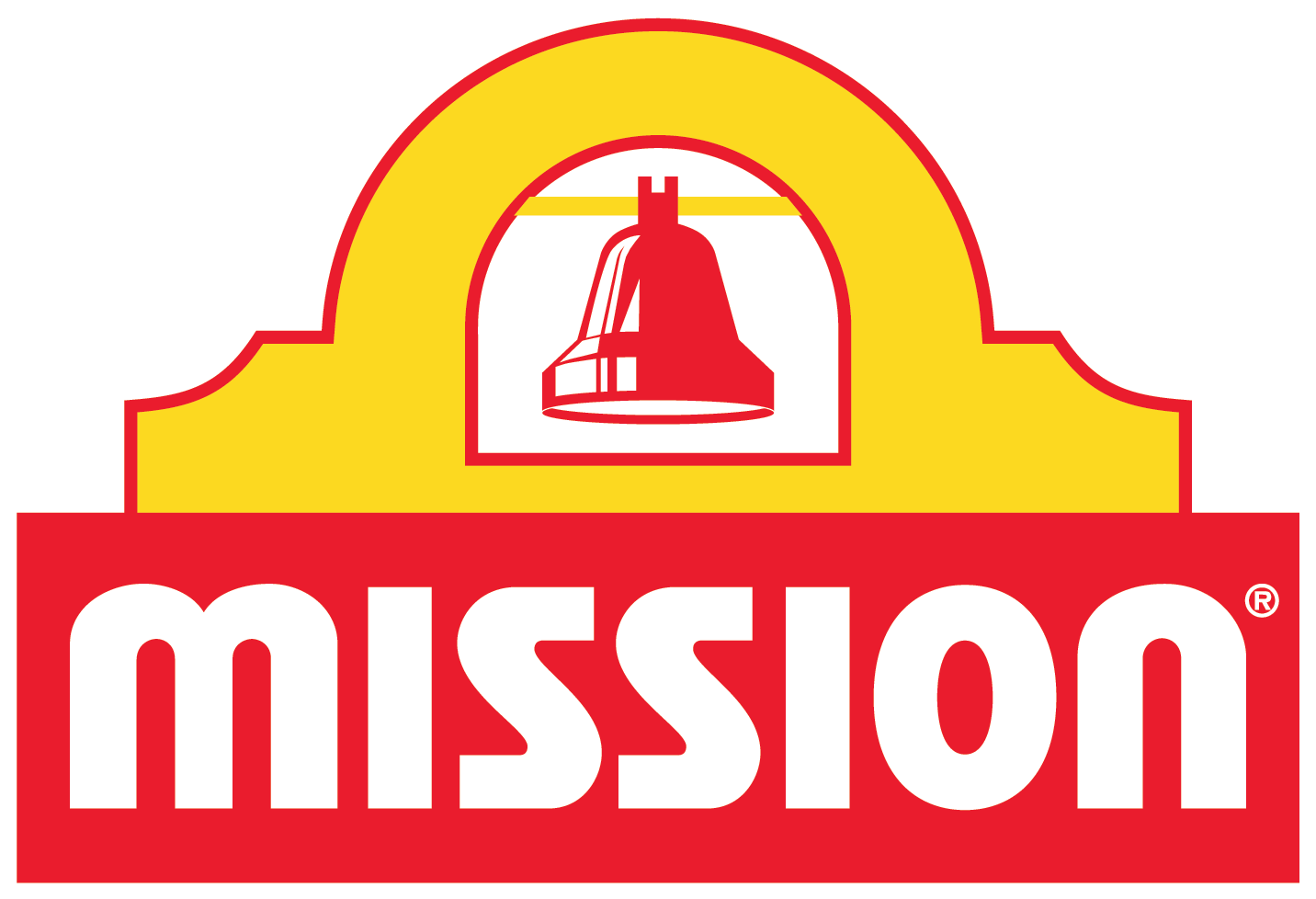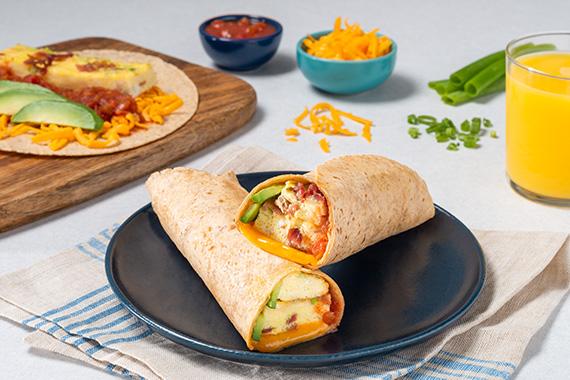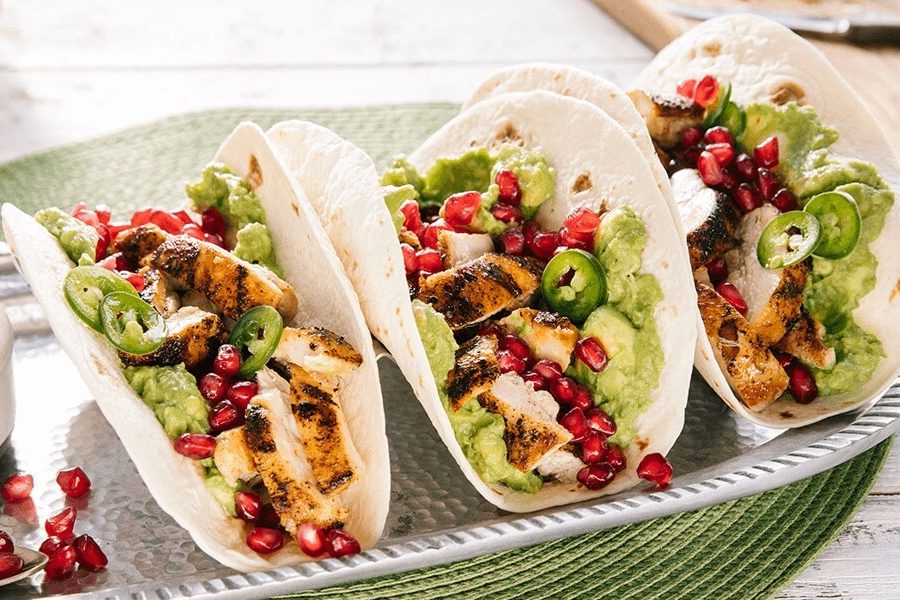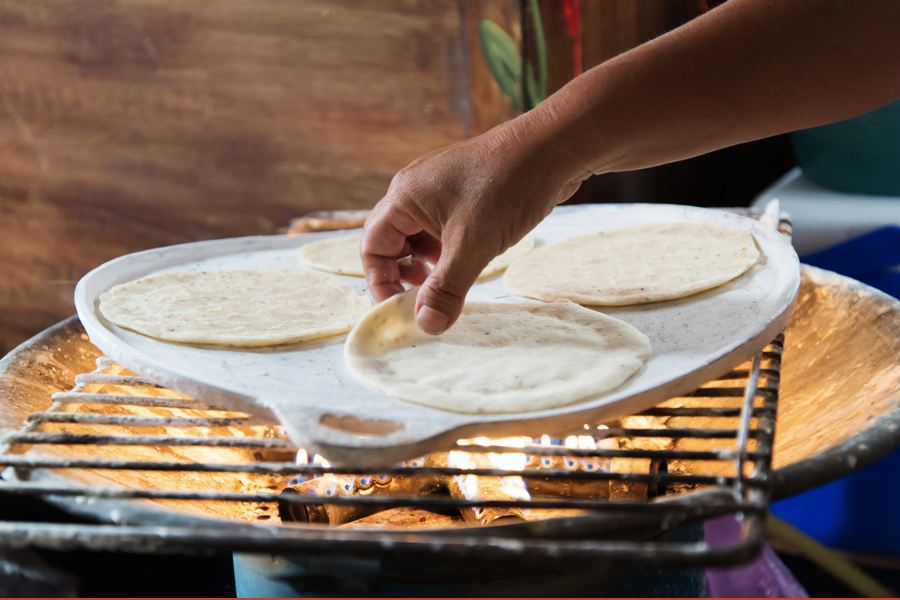YOU ASK, WE ANSWER
You'll find many of our most commonly asked questions here, but if you'd like to ask something more specific, contact us directly.
General
Our tortilla chips are fried.
We have recipes available in our website. https://www.missionfoods.com/recipes/
Street Taco: 4-5 inches
Fajita: 5.5 – 6.5 inches
Soft Taco: 7.5 – 8.5 inches
Burrito: 9.5 – 10.5 inches
Wraps: 9.5 – 10.5 inches
The difference is only in the diameter. A burrito is approximately 10”, a soft taco is about 8” and the fajita is about 6”.
Wraps are typically larger than a regular flour tortilla and come in a variety of flavors. Good for appetizers and party snacks.
We have 21 manufacturing facilities in the Unites States and 3 in Mexico. Most of our tortilla products are produced in the United States with domestic and imported ingredients. Check on the back of the package for products of Mexico.
Allergens
The following products containing milk ingredients: Fresh Signature® flatbreads.
No. Mission corn tortillas do not contain wheat, rye, barley, or oat ingredients.
No, there are no wheat ingredients or incidental wheat present in our corn products or on the lines that produce corn products.
No, sesame ingredients are not used in Mission® products.
Yes. We have implemented an allergen cross-contact prevention program in all our manufacturing facilities which sole purpose is to prevent crossover of allergens into other products that do not contain allergens. The core of this program focuses on a detailed cleaning and testing to validate the absence of allergens in products that are run in the same line(s) that contain allergens.
As consumers of food products, we understand your concern about the potential presence of allergens in the foods we eat. We follow all government regulations regarding product labeling. When labeling products, we consider – and label for – all possible sources of the 9 major allergens recognized by the FDA. These are eggs, fish, crustacean shellfish, milk, peanuts, sesame, soy, tree nuts and wheat. When any of these nine allergens are present in any quantity, it will always be listed in our product ingredient statement and in the allergen statement. We recommend that consumers evaluate each product based on its ingredient statement. To prevent possible cross-contact between products, we use an extensive and effective sanitation procedure between processing operations.
For ingredients used on each product, please visit the products page in our website https://www.missionfoods.com/products/, select the desired product and scroll down to the Nutrition & Ingredients button.
Yes.
- All wheat flour tortillas and wraps contain wheat.
- Fresh Signature® flatbreads contain wheat, milk and egg.
- Gluten Free Wraps do not contain allergen ingredients
- Corn Tortillas, Corn Tortilla Chips and Tostadas do not contain allergen ingredients.
Except as provided above, we do not use ingredients with peanuts, sesame, fish, crustacean shellfish or any of the other tree nuts (walnuts, hazelnut, pecan, cashew and pistachio) in our products and we don’t handle them in our facilities.
For ingredients used on each product, please visit the products page in our website www.ms-test.local/products/, select the desired product and scroll down to the Nutrition & Ingredients button.
Mission® corn products are certified gluten free and are produced with corn masa flour; these products include corn tortillas, tortilla chips, and tostadas. Wheat or other ingredients containing gluten are not added to the formulation for these products.
No, our corn production lines are dedicated to corn products only. Wheat flour tortillas are produced on dedicated lines. We have stringent allergen programs in place to prevent any cross contamination with our flour products.
No. Mission® wheat tortillas and wraps are generally not gluten free. They are made of wheat flour; and therefore, contain gluten. However, Mission® Gluten Free Wraps, are Certified Gluten Free.
Yes. Gluten Free Wraps, are Certified Gluten Free. Other than these products, all other regular Mission® wraps are made of wheat flour; and therefore, contain gluten.
The only product containing soy ingredients is the Mission Gluten Free Wraps.
No, our facilities do not handle nuts of any kind.
Nutrition and Ingredients
In order to produce wheat flour tortillas and wraps with 0 grams of trans fats, we at Mission® use a blend of fully hydrogenated soybean oil plus soybean oil, which contain very little fatty acids with trans-fat.
Nutritional information is contained in the Nutrition Facts panel on each or our products. For additional information, on nutrition facts and ingredients, please visit the products page in our website https://www.missionfoods.com/products/, select the desired product and scroll down to the Nutrition & Ingredients button.
We manufacture both GMO and Non-GMO products. All products containing bioengineered ingredients are labeled as such, in accordance with the National Bioengineered Food Disclosure Law.
Partially hydrogenated oil is not used as a primary oil in the products manufactured by Mission. It may be present in some specialty formulas or as a subcomponent in an ingredient used in specific formulas. If partially hydrogenated oil is present in a formula, it will be declared as such in the ingredient statement. Mission flour tortillas declare 0g trans fats on the packaging and the ingredients list “hydrogenated oil”. Is it really 0g trans fats? Food manufacturers are allowed to list the amount of trans fat with less than 0.5 grams (½g) as 0 (zero) on the nutrition facts panel. As a result, consumers may see a few products that list 0 grams trans fat on the label, while the ingredient list will have “shortening”, “partially hydrogenated vegetable oil”, or “hydrogenated vegetable oil” listed. This means the food contains very small amounts (less than 0.5g) of trans fat per serving. (Reference: FDA FAQ). In order to produce wheat flour tortillas and wraps with 0 grams of trans fats, we at Mission® use a blend of fully hydrogenated soybean oil plus soybean oil, which allows us to label products with 0 grams of trans fats per serving.
Yes. Food manufacturers are allowed to list the amount of trans fat with less than 0.5 grams (½g) as 0 (zero) on the nutrition facts panel. As a result, consumers may see a few products that list 0 grams trans fat on the label, while the ingredient list will have “shortening”, “partially hydrogenated vegetable oil”, or “hydrogenated vegetable oil” listed. This means the food contains very small amounts (less than 0.5g) of trans fat per serving. (Reference: FDA FAQ).
The only products that are animal-derived are, Mission® Chicharrones and Mission® Fresh Signature Flatbread products.
Mission® wraps, tortillas and chips do not contain any ingredients coming from animal-based products, making them acceptable for vegetarian and vegan diets.
They are vegetable-based.
There is MSG in the following products: Mission® Picante Flavor Pork Rinds.
Most of our products are kosher. Look for the kosher symbol on our packaging. The following products are not kosher: Mission® Pork Rinds, Mission® salsas and the Mission® Fresh Signature® Flatbread products.
Shelf Life
The shelf life of Mission® products varies depending on their formulation and storage conditions. The following is the typical shelf life of Mission® products stored at ambient temperature (unopened package):
- Flour tortillas: 16 – 45 days
- Carb Balance tortillas: 35 days
- Wraps: 60 days
- Corn tortillas: 45 days
- Tortilla chips: 60 days
- Tostadas: 90 days
- Pork Rinds: 90 days
- Chunky salsas: 12 months
The date that is stamped on the package is the date that we can guarantee the freshness of the product. If you choose to consume the product any time after that date we ask for you to use your best judgment.
It depends on the handling conditions the product was exposed to. If you are not going to consume the whole package after opening it, wash your hands, remove the tortillas you will need, and tightly close the package. The product should be good until the expiration date printed on the package.
The date stamped on the package is the date that we can guarantee freshness of the product. If you choose to consume the product any time after that date, we ask that you use your best judgment based on the appearance, texture, taste, and smell.
The tortillas can be left at ambient temperature and should be good until the date printed on the package.
They may grow mold and become dry.
Heating and Storage
Not necessarily. The tortillas will last at ambient temperature until the date printed on the package. If they are placed in the refrigerator until they are ready to be used, they will last longer. The shelf life in the refrigerator varies depending on the conditions the product was stored in prior to placing them in a refrigerated container.
Tortillas may be heated on a skillet or electric griddle, on the grill, or in the microwave. For best results, heat tortillas on an ungreased skillet over medium-high heat for 10 to 15 seconds. Flip and heat for another 5 to 10 seconds. If you are using a microwave, place 4 to 6 tortillas between two damp paper towels. Microwave 30 to 45 seconds or until heated through. Wrap in a cloth or tortilla warmer until ready to serve.
Yes, you can freeze wraps. We recommend for you to let them thaw a day or two before you are ready to use the product. Do not use the microwave to thaw the product.
Flour and corn tortillas should never be defrosted in the microwave. For optimum flavor and texture, let the tortillas defrost in the refrigerator for a day or two before using them.
Yes, it is okay to freeze tortillas. It is very important that you let them thaw in the refrigerator for a day or two before using them. Tortillas should not be thawed in the microwave.
Yes. If the product was in the refrigerated section at the store, they have a refrigerated code date printed on the package. If the product is not kept in the refrigerator after purchase, it may grow mold before its expiration date, depending on humidity and other ambient factors.
Carb Balance
You can calculate the number of Net Carb grams of the Carb Balance tortillas by looking at the information provided on a nutritional facts panel (Total Carbohydrates – Total Fiber = Net Carbs). The total carbs are as indicated on the back panel as total carbohydrates.
The total carbohydrates include all types of carbohydrates like sugar, sugar alcohol, fiber and others. The net carbs do not include the carbs from the total fiber.
We have been producing this product for many years and we have processes in place to ensure we meet the nutritional values we declare. We have improved our production processes, we tighten our process parameter limits, increased our sample size and we sent a new set of samples to a recognized laboratory to test our products. We printed our new packaging based on the new laboratory results.
Please rest assured that the nutritional information we are declaring is accurate.
Calories may be calculated in different ways. We recently transitioned calorie calculation from method A to B, and since these products contain a high level of fiber, the calorie value decreases significantly. A. CALORIES = FAT x 9 + PROTEIN x 4 + TOTAL CARB X 4 B. CALORIES = FAT x 9 + PROTEIN x 4 + (TOTAL CARB – TOTAL DIETARY FIBER) X 4 + SOLUBLE FIBER X 2
The modified wheat starch is the ingredient that contributes to the high fiber content in the Carb Balance Tortillas.
We have recently made a change with all our Mission Carb Balance tortillas. The ingredients in the product formula remain the same as before. However, we changed the amount of ingredients used and had to update product packaging based on a new FDA regulation pertaining to how nutritional information in calculated.
You can calculate the number of Net Carb grams of the carb balance tortillas yourself by looking at the information provided on the nutritional facts panel:
Net Carbs = Total Carbohydrates – Total Fiber
The total carbs are as indicated on the back panel as total carbohydrates.
The Net Carbs is a calculated value that comes from a subtraction of the total fiber from the total carbohydrates.
The calories are calculated using the general factors of 4, 4, and 9 calories per gram for protein, total carbohydrate (less the amount of non-digestible carbohydrates and sugar alcohols), and total fat, respectively, as described in USDA Handbook No. 74.
Packaging
It is the code date we use to identify the plant that produced the product, the expiration date of the product, and the production line and time. This information helps us for traceability purposes.
The green packet inside Organic tortillas and products is an oxygen absorber to help maintain the freshness of the product.
This date is the last day we guarantee our products to meet our high standards for taste and quality.
Corporate Sales
For a Retail Store, please contact Mission Foods Retail Group: 972-232-5205.
For a Business, please contact Mission Foods Call Center: 214-583-5113.
For a Restaurant, please contact Mission Foodservice Support Hotline: 1-800-443-7994 or go to their website at https://missionfoodservice.com/support/sales-locator





Follow Us